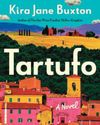
Logline. Elevator Pitch. Query Pitch. Plot Synopsis. The terms thrown at hopeful authors can be overwhelming. To make matters even more confusing, the definitions of these terms vary depending on whom you ask. It’s enough to make an author throw their manuscript at a wall.
And after you get your mind around the differences between these terms? How do you create them? What are the rules? What do agents and publishers want?
The good news is that there are no hard and fast rules. The bad news is that different agents often want different things. The great news is that there are steps you can take to create an appealing logline, elevator pitch, query pitch, and synopsis that will cover all your bases. They don’t have to be so mysterious.
Ask yourself, “What are you trying to achieve?” Are you trying to determine if your book would appeal to the agent? (Step One) Or are you trying to convince them to read your book? (Step Two)
Too often, authors tend to rush right to Step Two. Instead, take the time and go through the first step, determining the appeal of your book to your intended audience. Doing this can make a stronger connection with the agents you’re querying. It gives them a chance to quickly determine if they would be a good fit for your project and, in doing so, save you and the agent time and stress.
In Step One, a logline and an elevator pitch will help everyone determine if your book has the elements needed to appeal to a particular agent. The more extended query pitch and plot synopsis in Step Two are designed to convince the agent to read your book to determine for themselves the merits.
You’ll need all of these in your tool bag over time. Therefore, it’s vital to have the four elements all readily at hand.
The First Element: LOGLINE
Bu hikaye Writer’s Digest dergisinin May - June 2023 sayısından alınmıştır.
Start your 7-day Magzter GOLD free trial to access thousands of curated premium stories, and 9,000+ magazines and newspapers.
Already a subscriber ? Giriş Yap
Bu hikaye Writer’s Digest dergisinin May - June 2023 sayısından alınmıştır.
Start your 7-day Magzter GOLD free trial to access thousands of curated premium stories, and 9,000+ magazines and newspapers.
Already a subscriber? Giriş Yap

What Is Your Story Question?
Revision and editing advice to take your first draft to the next level.

Writing for the People We Hope to Become
Elisa Stone Leahy's new middle-grade novel, Mallory in Full Color, tackles the in-between moments of adolescence, when who we are and who we want to become collide.

Creating Community
Whether hot off the presses or on the shelves for years, a good book is worth talking about.

Pat Barker
The Booker Prize-winning author of Regeneration shares the role characters play in developing novel ideas and explains what appeals to her about reimagining mythology.

How to Write in Different Genres
Emiko Jean and Yulin Kuang share tips and strategies for how they successfully write in different genres and mediums.

The Shortest Distance Between Two Points
Ten tips for writing a novel with 100-word stories.

Mayfly Marketing
How to sell your novel in a short-attention-span world.

"You'll be a great essay".
How to write six types of personal essays by finding the funny in your life.

The Idea Factory
Tired of staring at an empty screen? Unlock your inner fiction generator with these surprising inspiration techniques.

Seinfeld Was Right: That's a Story
Use mundane moments from everyday life to create stories that pack a punch.